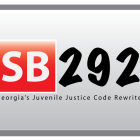
Support Proposed Revision of Georgia Juvenile Code
|
We are deeply saddened by Judge Rodatus’ op-ed on the juvenile code rewrite project and his views about the process that has been used to refine the Child Protection and Public Safety Act, which in its most current form is House Bill 641. His remarks do not reflect the wider community of juvenile court professionals. We appreciate the opportunity to provide some important clarifications and corrections. The Original Proposed Model Code
Judge Rodatus correctly notes that this project began with work of the Young Lawyers Division (YLD) of the State Bar of Georgia on a Proposed Model Code (PMC) for Georgia. However, the circumstances of the PMC were very different from what he describes.


